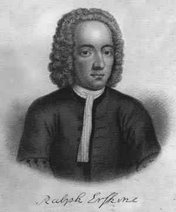Rene Descartes, Charlie Brown, and The Red Pill

Have you ever had a dream, Neo, that you were so sure was real? What if you were unable to wake from that dream? How would you know the difference between the dream world and the real world?
Morpheus, The Matrix
Are you really reading this post? Or are you dreaming that you're reading it? How can you tell the difference?
Suddenly I woke up and I was indeed Chuang Tzu. Did Chuang Tzu dream he was a butterfly, or did the butterfly dream that he was Chuang Tzu?
Chuang Tzu (4th century B.C.)
17th century philosopher Rene Descartes grappled with this very issue: How does one distinguish dreams from reality? Doubt was not new to Descartes. Indeed, it was the very foundation of his philosophical system: Doubt everything that can be doubted to find what cannot be doubted.
With his system, Descartes found himself in the quandary of quandaries: an infinite regression of doubts. However, one thing offered a glimmer of hope—he doubted. He had to first exist in order to doubt that he exists—cogito ergo sum—I think therefore I am!
However, like a pebble in a shoe, one nagging question remained: How do we differentiate dreams from reality? Descartes brings this problem to light:
[Surely I] cannot reasonably . . . doubt . . . that I am here, seated by the fire, attired in a dressing gown, having this paper in my hands and other similar matters. And how can I deny that these hands and this body are mine, were it not perhaps that I compare myself to certain persons, devoid of sense, whose cerebella are so troubled and clouded by violent vapors of black bile, that they constantly assure us that they are kings when they are really quite poor, or that they are clothed in purple when they are really without covering . . . .
At the same time I must remember that I am . . . in the habit of sleeping, and in my dreams representing to myself the same things or sometimes even less probable things, than do those who are insane in their waking moments. How often has it happened to me that in the night I dreamt that I found myself in this particular place, that I was dressed and seated near the fire, whilst in reality I was lying undressed in bed! . . . On . . . reflection I see . . . manifestly that there are no certain indications by which we may clearly distinguish wakefulness from sleep . . .
Descartes argues, “that there are no certain indications by which we may clearly distinguish wakefulness from sleep . . .” It seems a forgone conclusion that anything that can take place in reality can also take place in a dream, thus causing the deception. But what if there is something that can take place in reality but cannot take place in a dream? Then there would be a clear distinction—a roadmap to reality.
Does Charlie Brown Know that He is a Fictional Character?
Does he know that he only “exists” in the mind of Charles Schulz, conveyed through quill and ink? No, he does not. For Charlie Brown does not actually exist; he is not capable of independent thought. He “knows” nothing.
Imagine for a moment Charlie Brown’s dog, Snoopy, atop his red-roofed dog house. If we take another person who is imagining the same thing, and open his head, do you think we will find Snoopy, atop his red-roofed dog house, inside the person’s brain? Probably not. This is because, like his master, Snoopy is not really there; he was only an image produced by the person’s mind.
Now we'll look again at dreams. The “actors” (or projections, as called in the movie Inception) inside of dreams are produced by the mind. They do not really exist. If we opened the skull of someone who is in the REM stage of sleep (where dreams are said to occur), like Snoopy, we wouldn’t find anyone there.
An independent thought may only be produced by a mind. One must exist in order to have a mind. Therefore, one must exist in order to have an independent thought. The actors in the dream do not exist; therefore, they cannot produce independent thought. Conclusion: Independent thought cannot take place inside of a dream, only in reality.
Conclusion
Once someone presented me with a refutation: A mathematician was trying to solve a difficult problem; he labored for quite some time, but to no avail. Then one night, while dreaming, he saw himself write down the answer to this math problem. The conclusion drawn by this person was that the “actor” solved the problem. The problem is, as we saw earlier, that the actor does not exist, so he could not solve the problem. The mathematician solved the problem. The dream was just a vehicle of his subconscious to convey the answer to his consciousness.
Dreams will continue to puzzle us. The mind and the brain are amazing and wondrous things. The subconscious aspect of our life will always present riddles that seem to have no answer. But one thing is clear: dreams can be distinguished from reality. The “actors” produced by the mind do not exist, and are not capable of independent thought. Only we, the sentient, are the true actors upon the existential stage—just ask Charlie Brown.
Labels: Philosophy


























